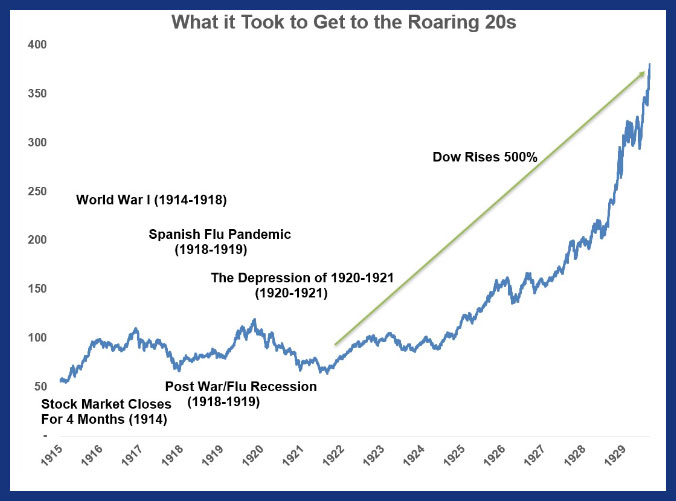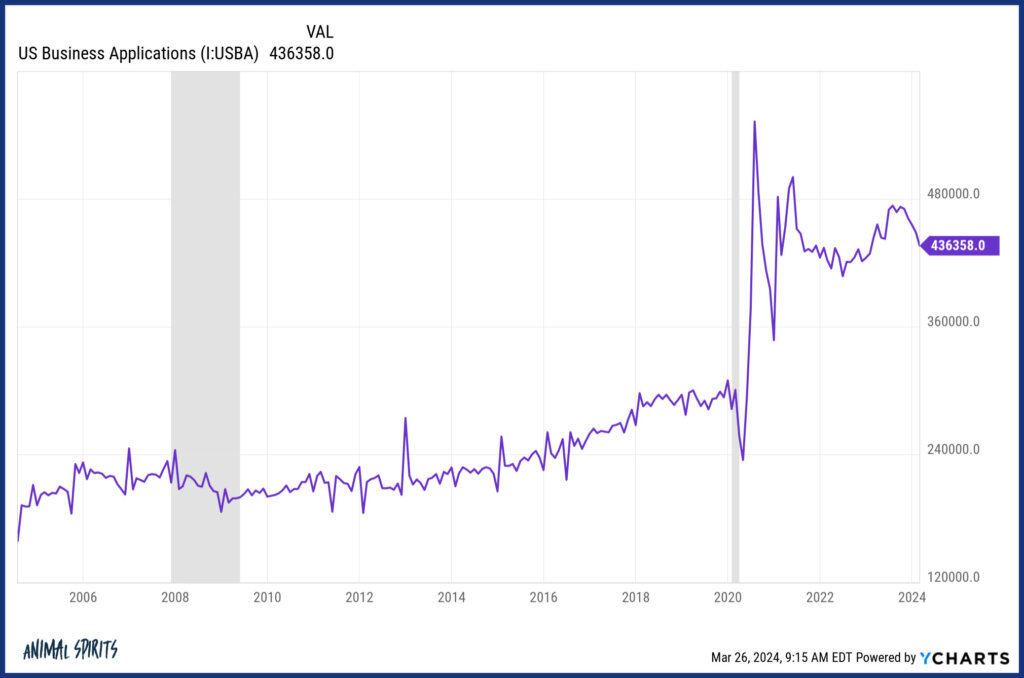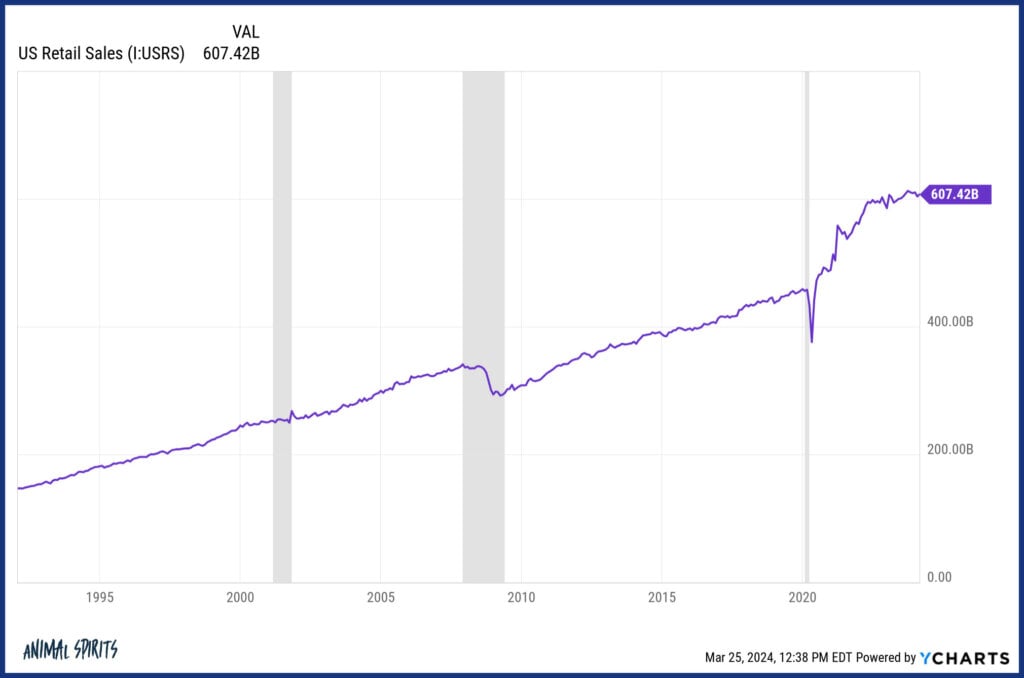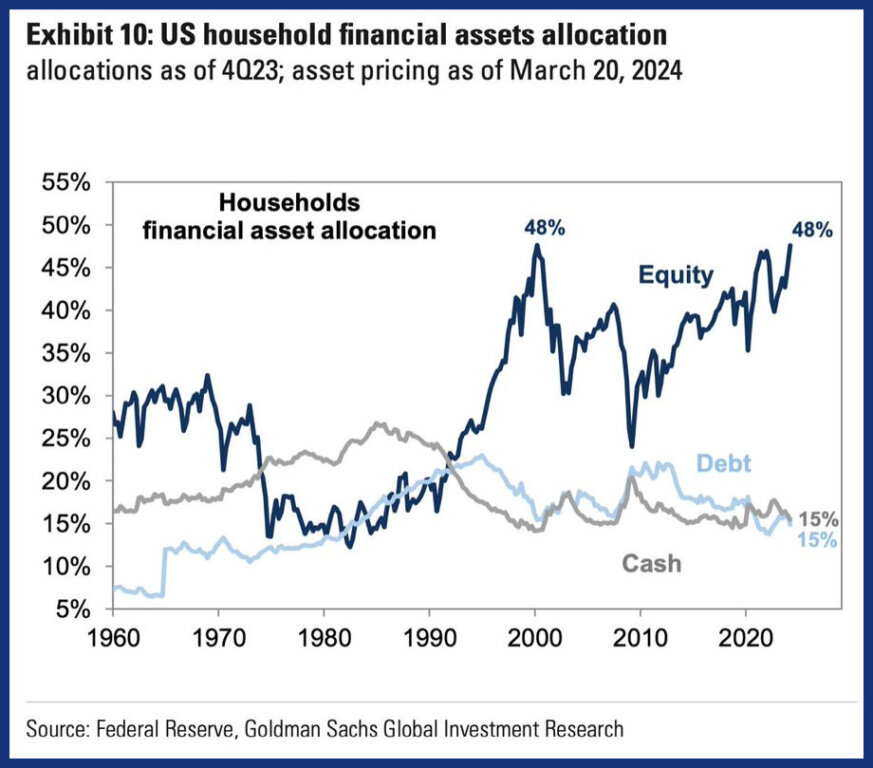Making sense of the markets this week: April 7, 2024
History repeats (or rhymes) itself in latest market upswing, FHSA celebrates its first birthday, investors getting rich from stocks, and GE and 3M decide the sum of their parts is better split.
Advertisement
History repeats (or rhymes) itself in latest market upswing, FHSA celebrates its first birthday, investors getting rich from stocks, and GE and 3M decide the sum of their parts is better split.

Kyle Prevost, creator of 4 Steps to a Worry-Free Retirement, Canada’s DIY retirement planning course, shares financial headlines and offers context for Canadian investors.
For those who aren’t into history, the Roaring ’20s has been referred to as the decade of innovation, celebratory spending, a booming stock market and general good feelings that occurred in the U.S. during the 1920s.
A hundred years later, history may be repeating itself, says Ben Carlson, director of institutional asset management at Ritholtz Wealth Management in Grand Rapids, Michigan, makes a pretty good case. Or, at least, as Mark Twain said, “History never repeats itself, but it does often rhyme.”
Carlson points out that we’re now experiencing the following:

Here are another couple of interesting data points Carlson highlights in regards to how exuberant both U.S. entrepreneurs and U.S. consumers are at the moment.


So are we ready to declare that the ’20s are back and the stock market will see the same incredible increase?!
Well, not exactly.
We’d argue we’re actually in a better place today than investors were in the 1920s. We’re benefitting from similar senses of optimism and innovation. But the general mood is much less “over the top” than it was in that post-war, post-flu period.
The “vibesession” is still alive and well. (That’s when negative headlines and investor chatter don’t align with economic data and statistics—meaning that it’s more of a “vibe” than a “recession.”) The combination of high interest rates and stubborn inflation is tamping down the most extreme versions of consumer excess—at least for most income brackets in Canada.
If you’re a history buff, you probably join us in assuming this economic skepticism bodes well for the long-term health of the economy. As people become less irrationally exuberant, the less devastating the inevitable market correction will be. To us, the really incredible factor in the current economic boom is that it is being achieved despite relatively high interest rates. It’s like holding an ace-high full house in a game of poker, with the comfort of knowing you have another ace up your sleeve if you really need it. When economic growth inevitably starts to slow down, interest rate cuts shouldn’t be far behind, and should set a floor under just how bad things can get.
If you’re worried about getting in as the stock market hits new highs, always remember that these bull runs can go on for a long time, as new all-time-highs are actually a pretty normal state of affairs.
As we just flipped the calendar to April 2024, Canada’s first home savings account (FHSA) celebrates one year as a registered account. We thought we’d take a look at how things are going so far for the FHSA:
Questrade president and CEO Edward Kholodenko recently commented on the fast FHSA uptake, saying “Being the first to offer the FHSA in-market no doubt accelerated the tremendous uptake Questrade saw over the account’s first year. It was historically one of the most in-demand rollouts we’ve experienced.”
And, Finance Minister Chrystia Freeland stated, “That is more than half a million Canadians who are one step closer to getting those first keys of their own.”
If you plan to buy a home at any point in the next 15 years the FHSA is really a no-brainer. You can generate a tax refund for the current tax year (like when you contribute to an RRSP), then stuff the refund money right back into the FHSA to supercharge next year’s contributions! For more on Canada’s newest account, you can read about the best FSHAs in Canada, and my take on Canada’s newest registered account.

Get up to 3.00% interest on your savings without any fees.

Lock in your deposit and earn a guaranteed interest rate of 3.65%.

Earn 4.50% for 5 months on eligible deposits up to $500k. Offer ends January 31, 2026
MoneySense is an award-winning magazine, helping Canadians navigate money matters since 1999. Our editorial team of trained journalists works closely with leading personal finance experts in Canada. To help you find the best financial products, we compare the offerings from over 12 major institutions, including banks, credit unions and card issuers. Learn more about our advertising and trusted partners.
U.S. household wealth recently hit a record high of USD$156.2 trillion, mostly thanks to the incredible post-2008 run that U.S. stocks have enjoyed.
In the fourth quarter of 2023 alone, the value of equities held in mutual funds and retirement accounts rose by USD$4.7 trillion, to USD$47.6 trillion.
The high interest rates over the last few years have led to the explosive growth of cash holdings, including certificates of deposit (like guaranteed investment certificates (GICs) in Canada) and money market funds. Cash holdings in the fourth quarter of 2023 increased by $270 billion to $18 trillion. Despite that relatively small increase, the rise in value of U.S. equities has led to American households to hold more of their wealth in equities than at any point in history (save the dot-com boom in 2000).

There are likely many reasons for this shift, but these factors could likely be the most prominent influences:
A contrarian investor might say this indicates an oversold market. We’re not so sure that’s the case. Given the long-term track record of U.S. stocks, we’d be surprised to see stock allocations fall below 35% of household assets in the foreseeable future. That’s as low as it got during the worst days of the pandemic. There has been a durable paradigm shift in how investors see the stock market from a risk/reward perspective.
Canadian investors aren’t doing so bad either. We hit a record high last quarter for financial assets of $9.74 trillion, and overall net worth reached $16.4 trillion. Financial assets (shorthand for stocks and bonds) increased overall net worth by about half a trillion bucks, while residential real estate was down about $158 billion. Household debt was up 3.4%, but that’s actually the slowest rise in debt since 1990, and the debt-to-income ratio actually fell slightly.
When big corporations buy new companies or dive into new lines of business they often tout the advantages of integration and synergies. The theory goes that the asset will be more valuable as a cog in the bigger machine. General Electric (GE/NYSE) and 3M (MMM/NYSE) are two of the world’s largest industrial companies and it was interesting to see them move in the opposite direction this week.
In contrast to the bigger-is-better theory, companies can sometimes get too big and be hindered by layers of bureaucracy. In that case, the spin-off idea is put forward, in which a part of the company will be separated into its own entity so it can focus on providing a narrower product or service. The more narrowly-focused company should, in theory, excel as it’s no longer distracted by the tangle of corporate machinery at the parent company.
GE completed its corporate restructuring last Wednesday, as the former parent company has now been divided into:
GE Aerospace shares finished down 2.42% on their first day of trading, while GE Vernova was down 1.42%.
GE hopes to fare better than its industrial cousin at 3M. The Minnesota Mining and Manufacturing company spun off its healthcare division in late March. It named the new company Solventum (SOLV/NYSE). The spinoff was formally completed Monday, April 1. Shares of Solventum are down more than 20% since initial trading began on March 26th, and 3M (MMM/NYSE) is down 15% since the start of the year.
It’ll be interesting to see if the new corporate structure gives 3M and GE a renewed sense of purpose and encourages streamlined innovation. Or, is it simply financial engineering designed to give shares a quick “sugar high” of newspaper headlines that will ultimately fail to increase long-term value?
Share this article Share on Facebook Share on Twitter Share on Linkedin Share on Reddit Share on Email